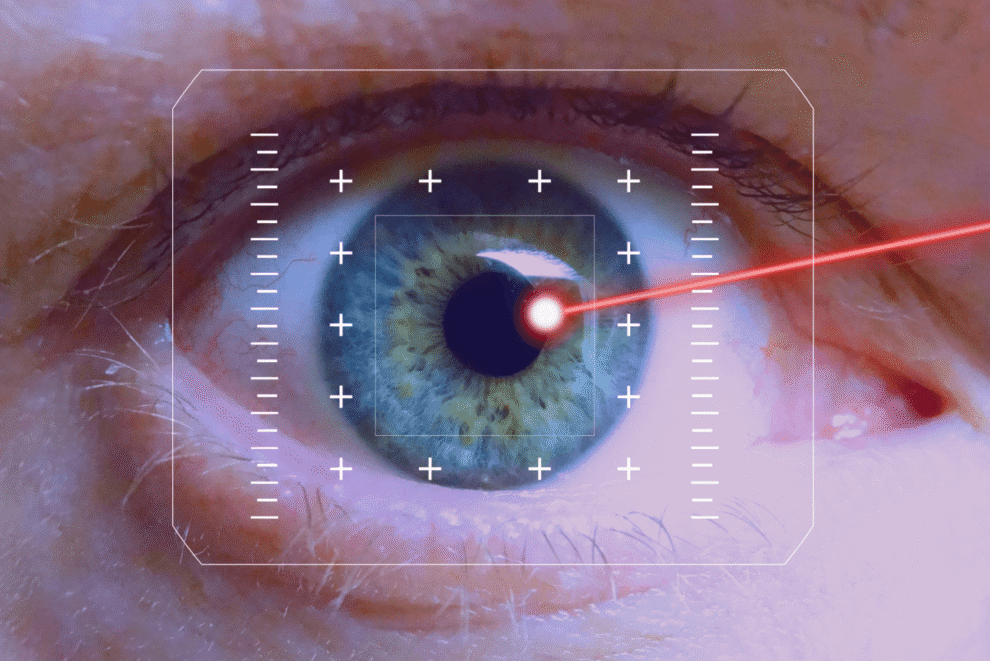Posted by: Kentucky Eye Institute in Vision Care

Over 10 million Americans have had Lasik surgery since it was approved by the FDA over 20 years ago. Since then, the procedure has become better and safer.
96% of people who get Lasik are happy with the outcomes of the surgery. That’s higher than any other elective surgery.
So once you get Lasic, what sort of Lasik eye surgery recovery procedures should you follow?
We explain everything here.
What Is Lasik?
With Lasik, the procedure itself typically only takes fifteen minutes, though you can expect to be at your doctor’s office for about two hours.
The surgeon will use a machine to stabilize your eye, and they’ll cut a thin layer over your cornea to fold it away. Then a laser fires light at your eye to reshape your cornea to improve your vision.
Then the cornea flap is placed back over your eye. It stays in place naturally and begins to heal within a few hours. The entire procedure should only take about fifteen minutes. While you might experience pressure, you’ll feel no pain throughout the procedure.
Your doctor will look at your eyes again, and you’ll be able to go home the same day, though you can’t drive.
Am I a Good Candidate for Lasik?
Generally, to be a good candidate for Lasik, you should be in otherwise good health. Patients with autoimmune diseases or diabetes might have more complications with Lasik surgery.
Your eyes also need to be in good health, and you shouldn’t have any ongoing eye issues, like dry eyes or glaucoma. Your corneas also need to be thick enough to safely pull back a thin flap.
The best way to know whether or not Lasik is right for you is to talk with your doctor. They can look at your specific case and make a recommendation.
Make sure you let your doctor know about all health issues, including pregnancy, claustrophobia, or any illnesses. These will factor into whether now is a good time for Lasik, or if it’s even a viable option.
There are a lot of benefits to Lasik, so it’s worth discussing it.
How Should I Recover From My Lasik?
When you leave your doctor’s office, you’ll have specific instructions to care for your eyes. This will include safe activity levels, rules for swimming in contaminated water, and how to keep your eyes moist.
Make sure to follow the packet’s instructions, and call your doctor right away if anything goes wrong. But here are some universal things to expect from your Lasik.
The Next Few Hours
Over the next few hours, your anesthesia will wear off, and you might experience some discomfort or pain. Your doctor should prescribe painkillers, so follow the instructions.
Your eyes may feel dry or itchy, or there might be a burning sensation, or there may be more tear production than normal. This is completely normal, and to be expected.
But you mustn’t touch or rub your eyes throughout this time. Your eyes need to heal, and rubbing them can damage the results from the surgery.
The first few hours after your surgery, rest, and avoid any activity.
The Next Few Days
Over the next few days, wear sunglasses during the day and eye shields at night. This will keep your eyes from getting damaged. Other than that, you can typically return to your normal routine.
Still, avoid swimming in contaminated water like oceans, hot tubs, or pools. It’s a good idea to avoid any rough activity for the first month. This includes sports or weight lifting with free weight lifts.
Sometime during this period, your doctor will want to see you again to see how you’re doing and how your eyes reacted to the surgery.
What Are Common Side Effects?
The most common side effect people experience throughout their Lasik recovery is dry eyes. Your surgeon will give you special lubricating eye drops to prevent your eyes from drying out.
You might also experience glare, halos, or double vision while recovering, but these should go away after a few months. They’re common side effects for Lasik patients.
How Long Does the Healing Process Take?
Your eyes will be healing for the next three to six months, so you must continue to take care of them. If you have severe short-sightedness, the process might take longer.
Throughout the entire process, stay in contact with your Lasik surgeon and contact them if you have any concerns. Your surgeon will be the best resource you have for any of your Lasik concerns.
Remember, Lasik only fixes your eyesight for now. So the ideal candidate is younger. Lasik doesn’t prevent age or other health-related eye issues, and your eyes will continue to age.
When Will I See Vision Improvements?
Immediately after the surgery, your vision may be blurry. Your vision should return to normal within 8 hours and will continue to improve. In some cases, it may take several months before you see (pardon the pun) the full effects of the surgery.
Proper Lasik Eye Surgery Recovery Is Vital for Preserving Your New Vision
Going through the proper steps for Lasik eye surgery recovery can help you make sure your Lasik surgery will keep your vision better for longer.
Make sure to rest and avoid any strenuous activity. Protect your eyes from the sun, and keep them from getting too dry. Keep checking back with your doctor, and stay on top of the healing process.
Lasik will help you see without the aid of contacts or glasses. It’s a common procedure, and you’re sure to love the results.
Curious about how Lasik can make your life better? Schedule an appointment with us today.
